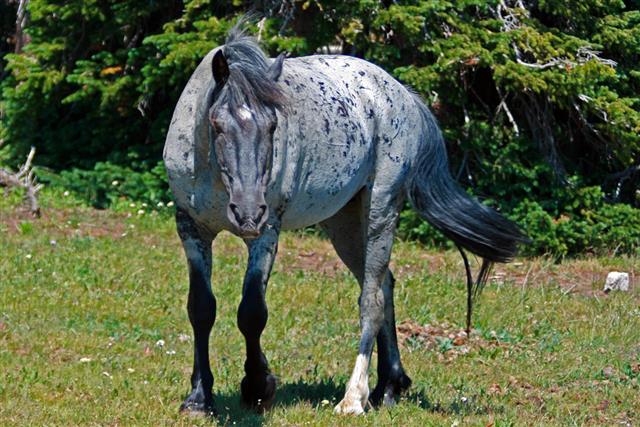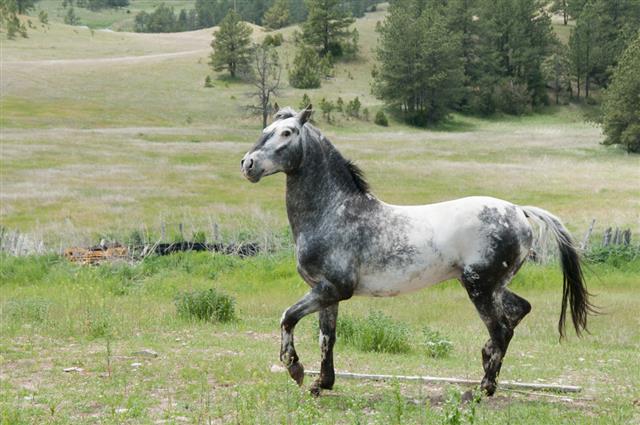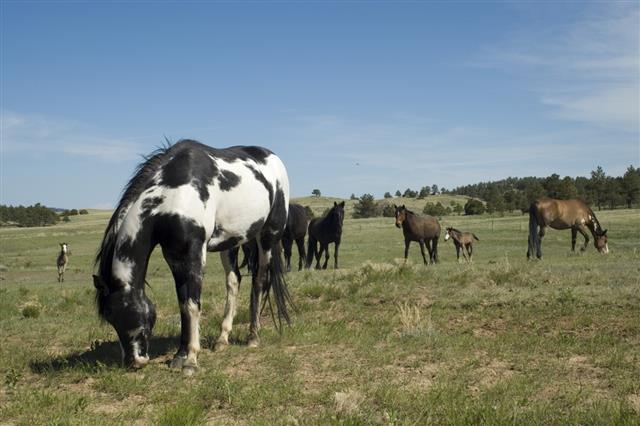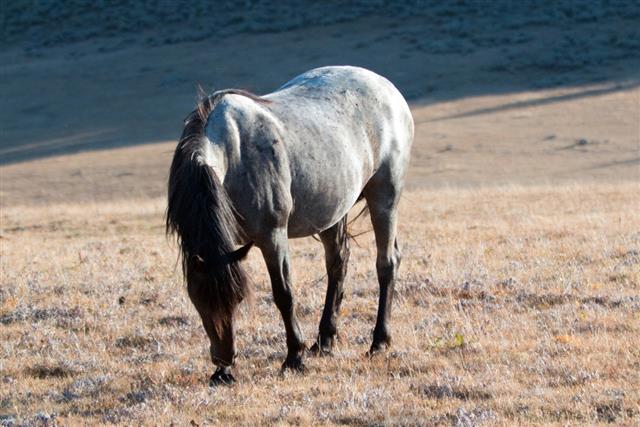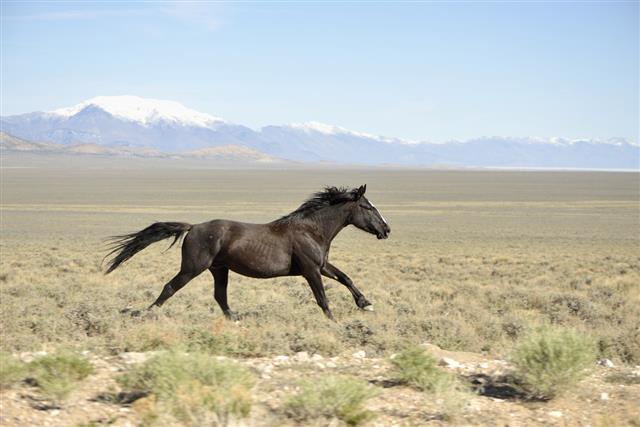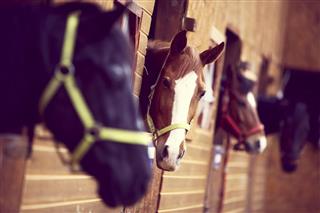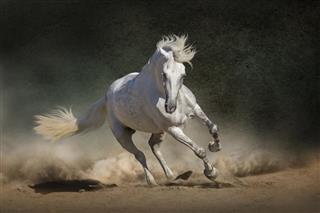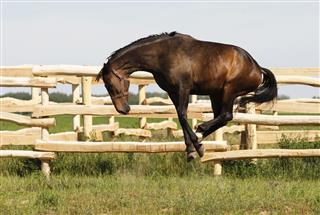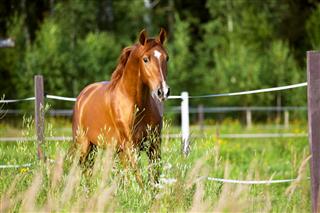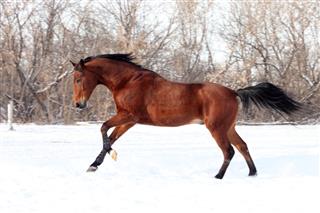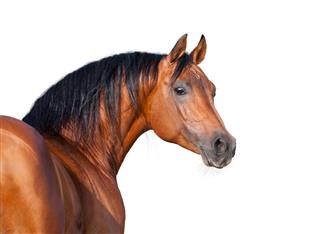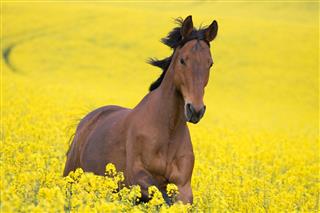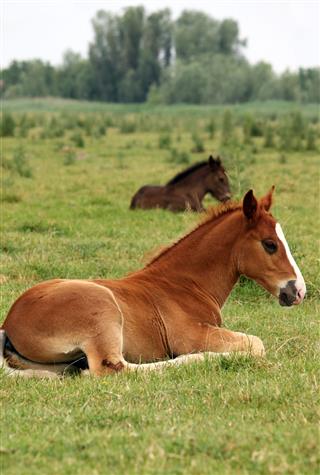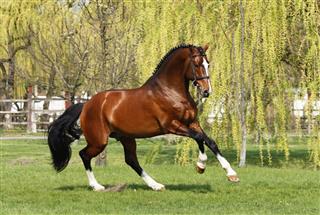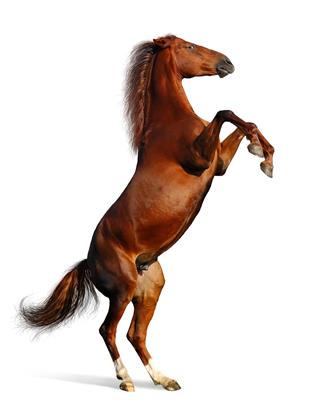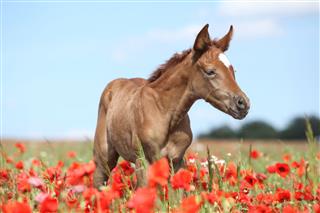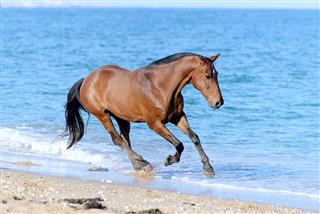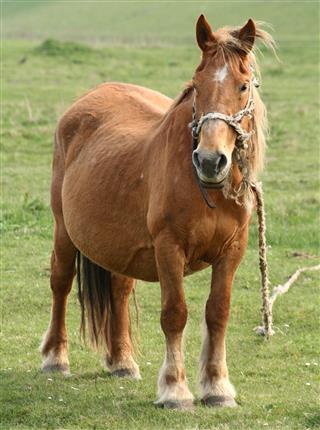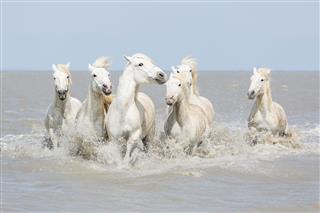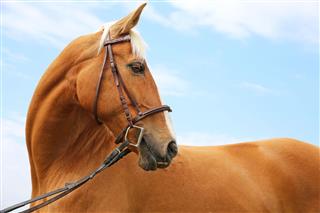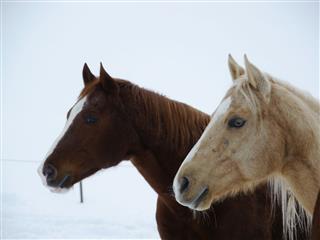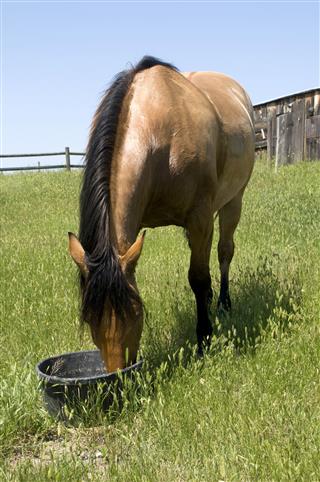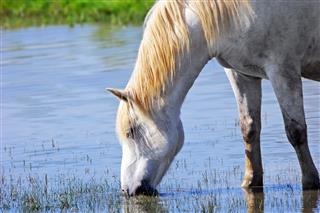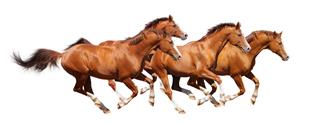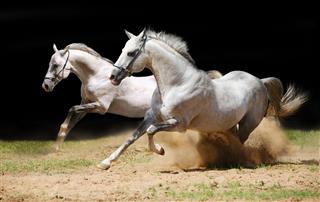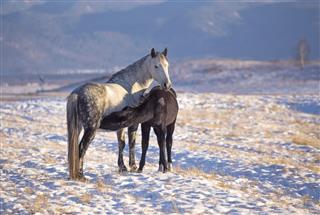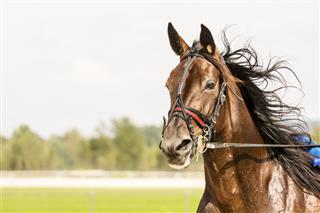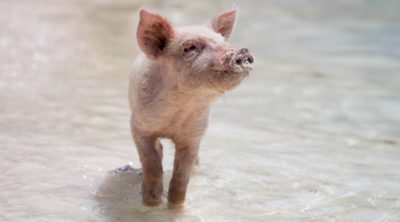
We would recommend you to go through the lengthy list of mustang horse names if you plan to own the magnificent beast that roams the plains of Western America.
The mustang is a breed of hardy, free-roaming horses that are believed to have descended from the horses brought by the Spanish conquistadors. It is a popular sports mascot that stands for the qualities of hardiness, grace, speed, and independence.
Prehistoric horses that lived in North America died out during the last ice age around 10,000 to 12,000 years ago. When Christopher Columbus discovered the New World, he brought with him horse breeds of Andalusian, Arabian, and Barb ancestry. Thus, began the reintroduction of horses to North America. The newly introduced Spanish horses were known for many qualities; hardiness being one of them. In fact, it was their hardiness that helped the breed survive in the wild and earn itself the title of a breed that was made to survive.
Wild horses became a common sight in both North and South America. These were the horses that were left, strayed, or stolen, which eventually became wild or feral horses. When the Native Americans learned horse riding, they started catching them. An individual Native American could own a hundred horses and the tribe could own over a thousand of these. As the nomadic tribes moved from place to place, they would lose some horses. Thus, these horses were scattered across America and multiplied freely.
Names for Mustang Horses
Interesting Facts
Mustangs are known to have many colors, including coyote duns, smokies, blues, blue roans, shining blacks, rusty browns, red roan, toasted sorrels, splotched appaloosas, cream-maned palominos, snip-nosed pintos, flea-bitten grays, black-skinned whites, etc.
- The word mustang means wild and untamed in Spanish.
- The mustang breed has roamed freely since over 300 years. This has made it into a very thrifty, independent, and hardy creatures.
- Mustangs were favorites of the Native Americans and cowboys due to their good cow sense that made them cattle working companion.
- There were about 2 million mustangs at the beginning of 20th century that came down to less than 30,000 by the end of the century.
- The law for The Roaming Wild Horse and Burro Act of 1971 was introduced to protect mustangs.
This was some information related to the beautiful and sturdy mustang breed. With a lineage of great horses running in their blood, the mustang today is mostly used for stock work, riding, and endurance riding.
